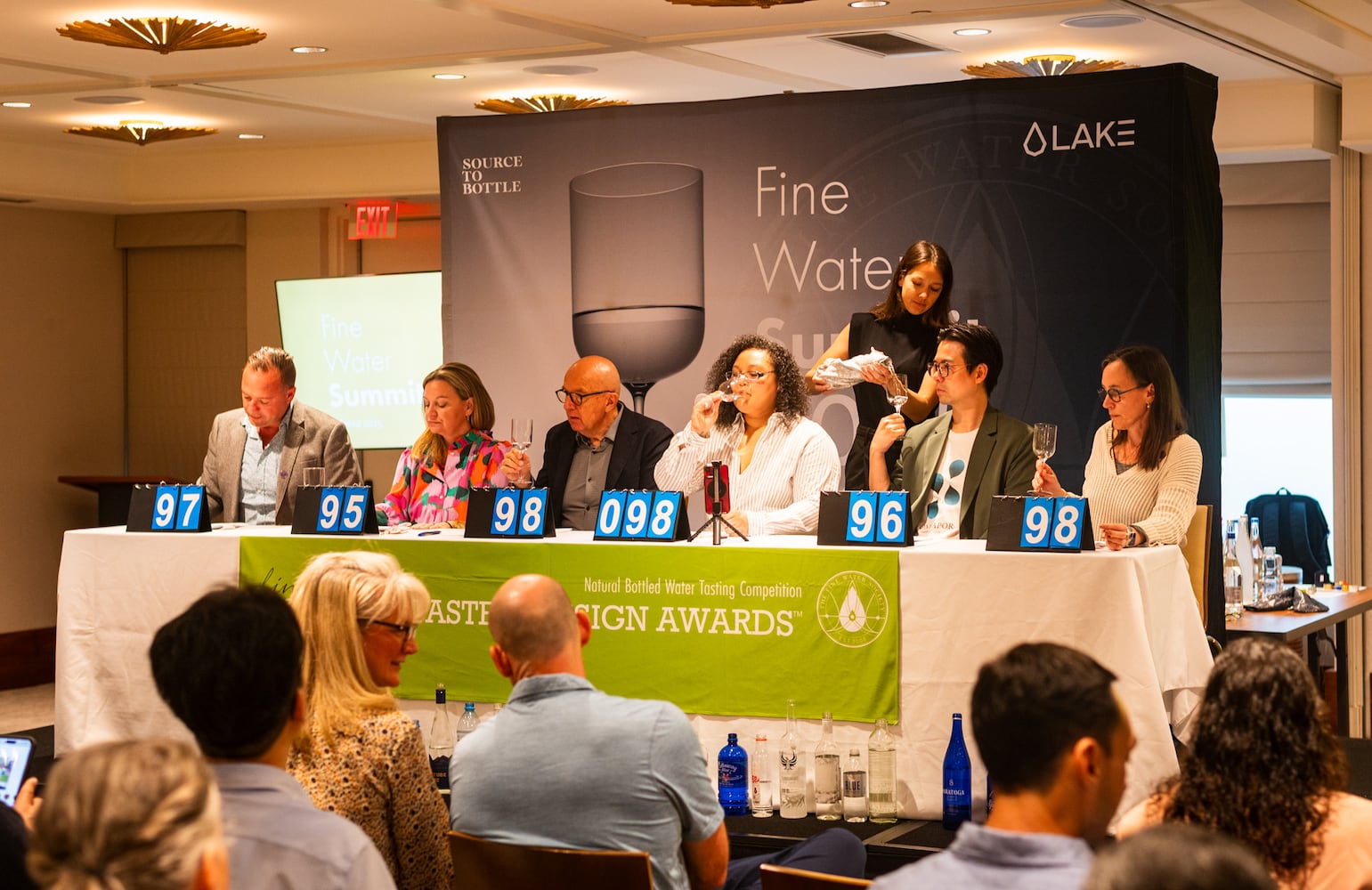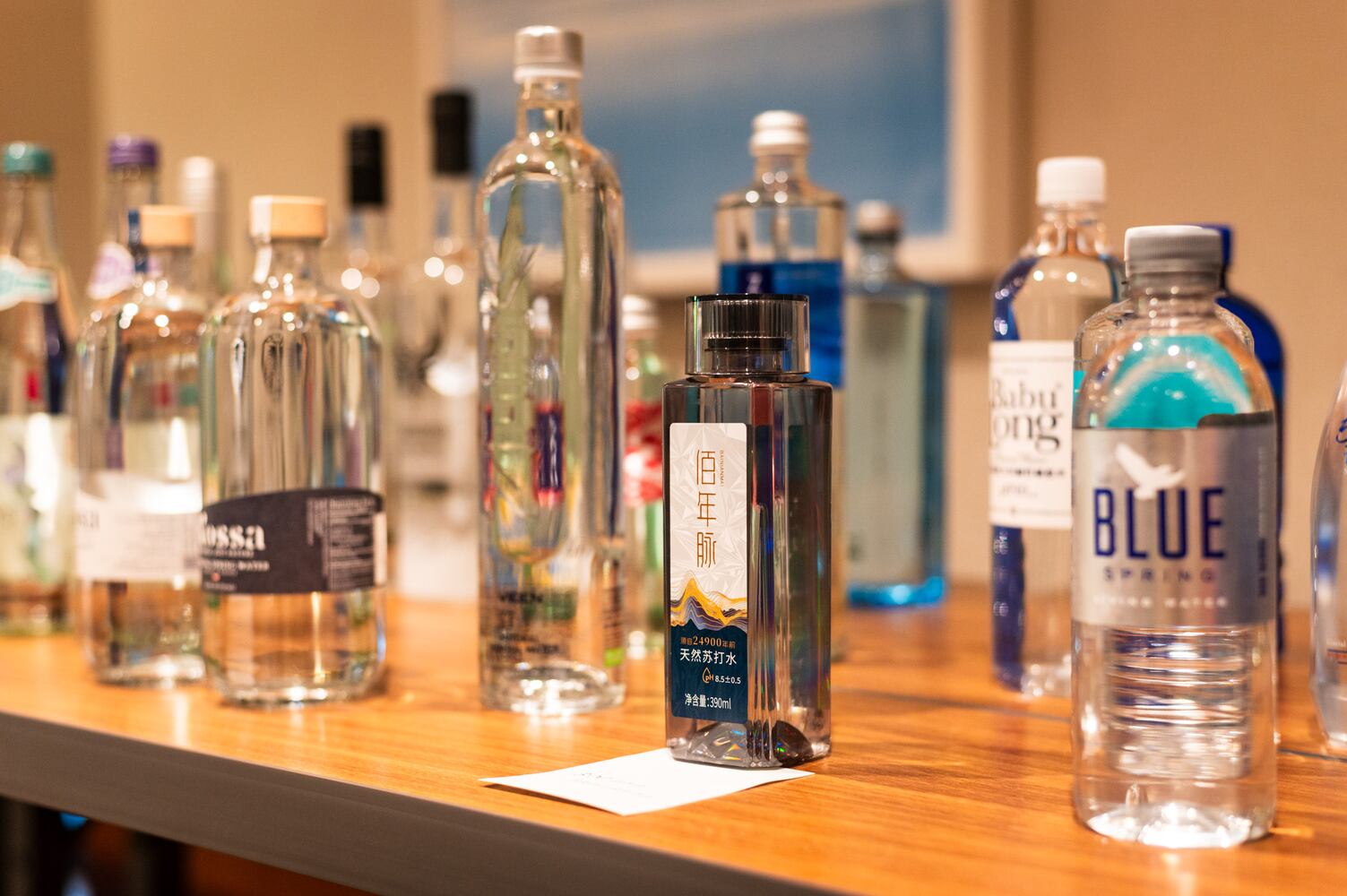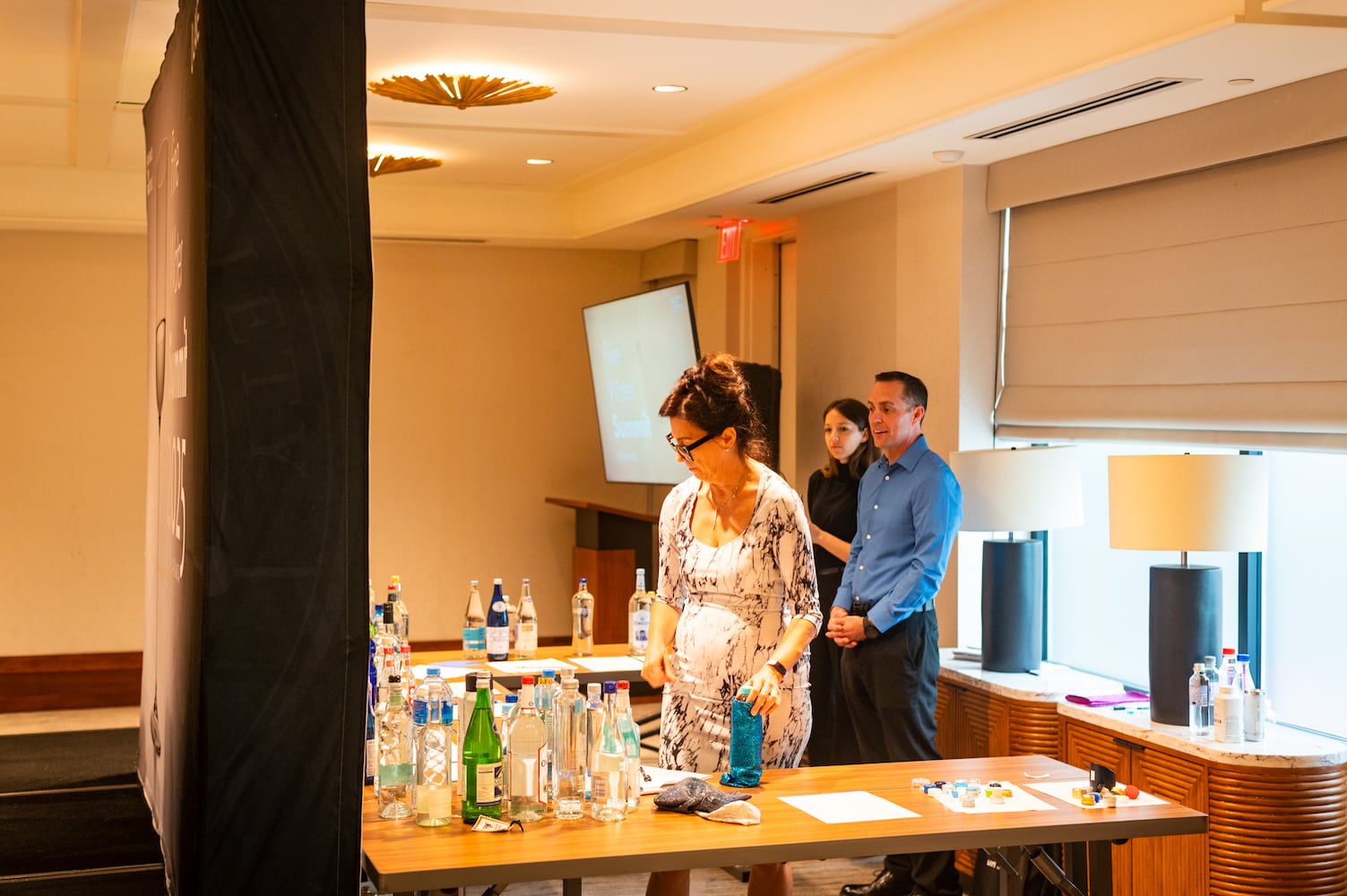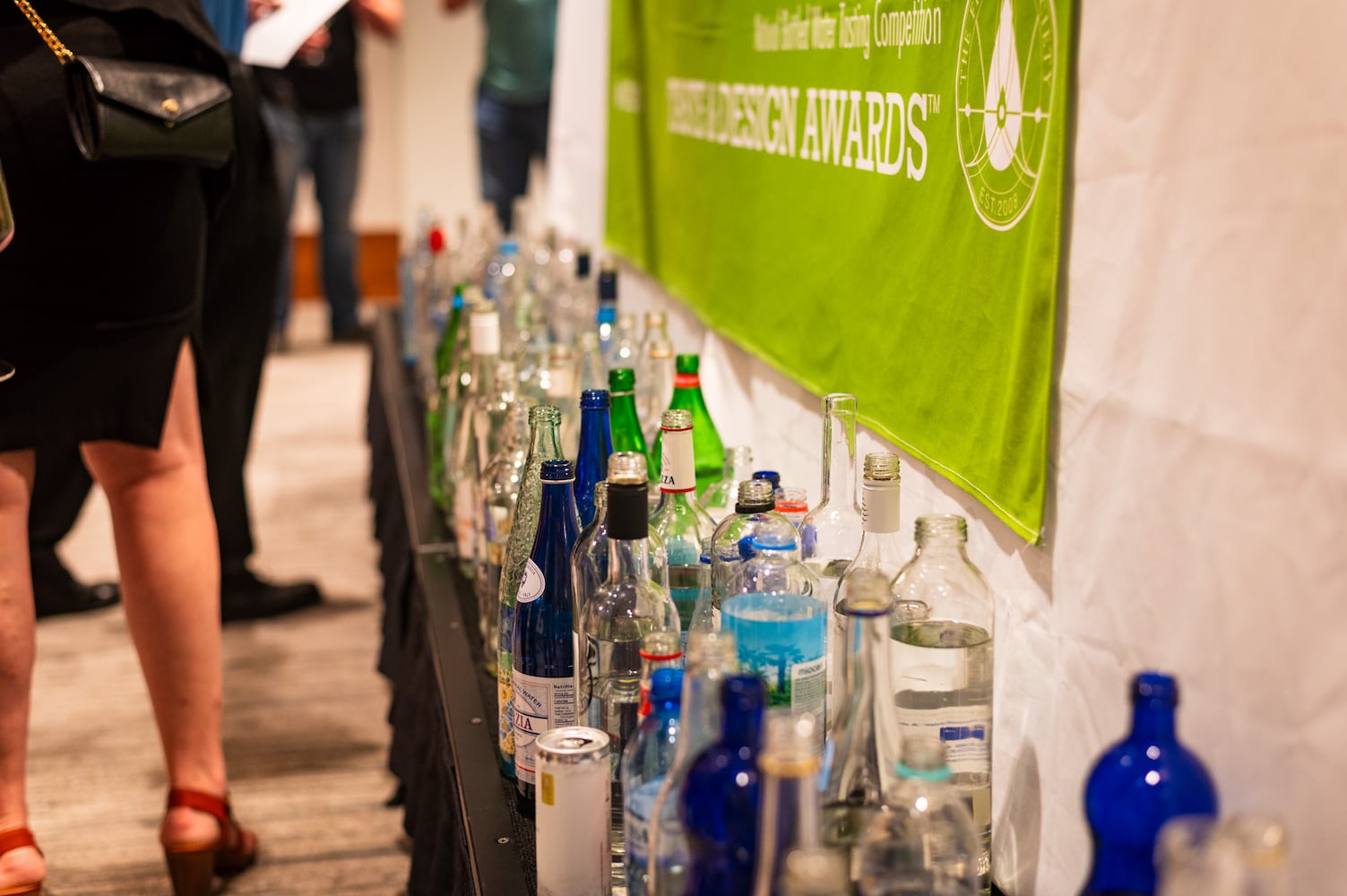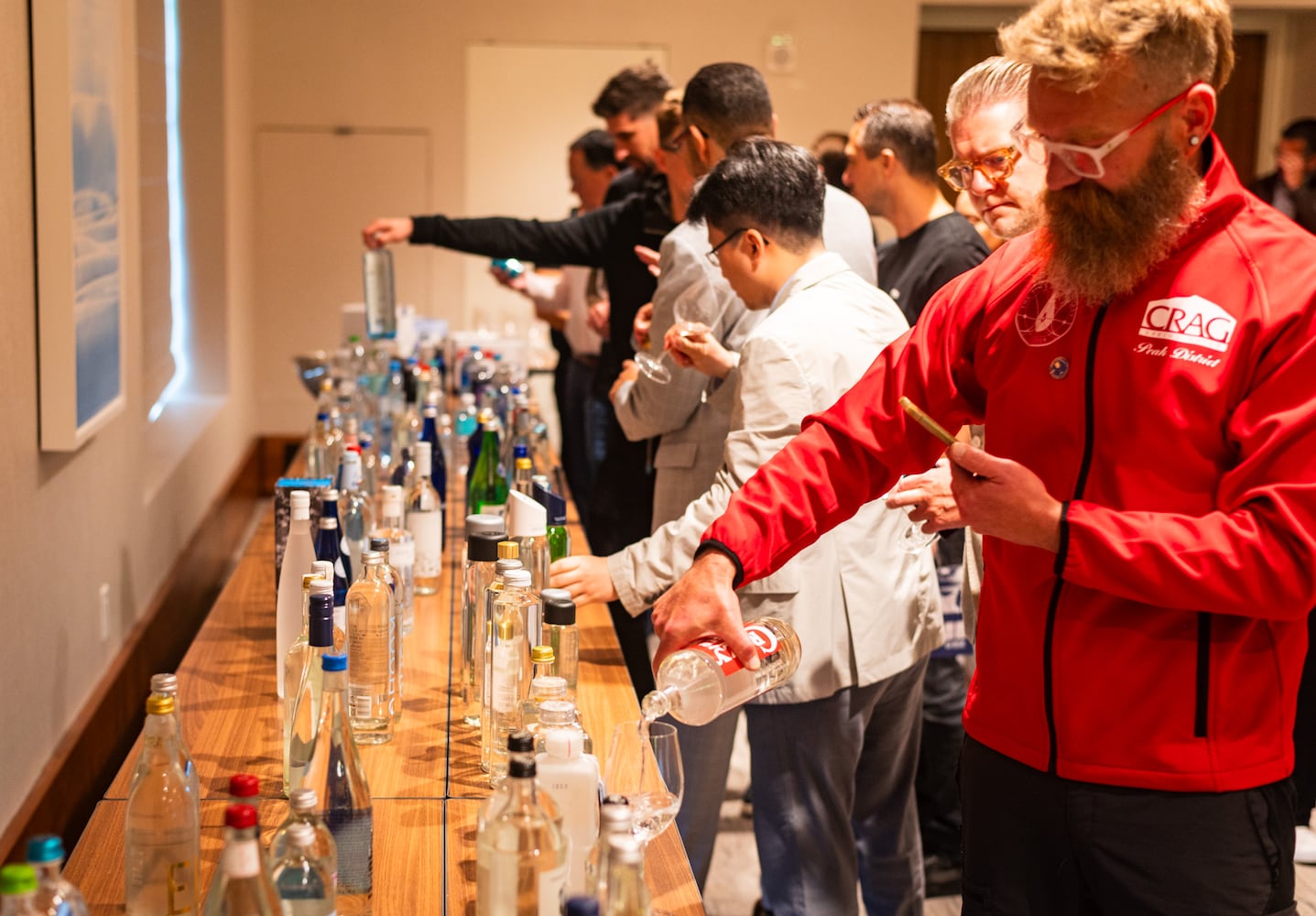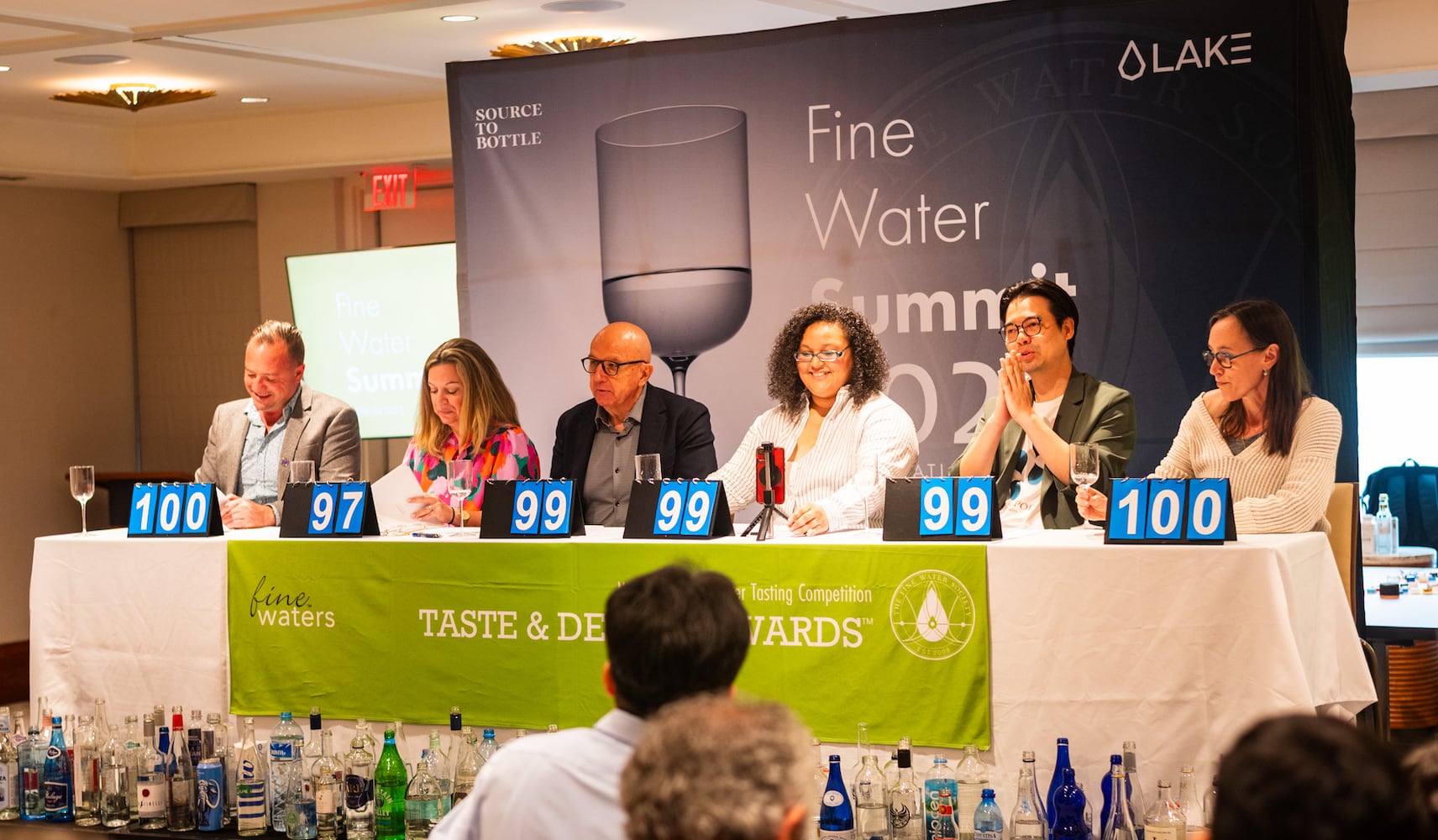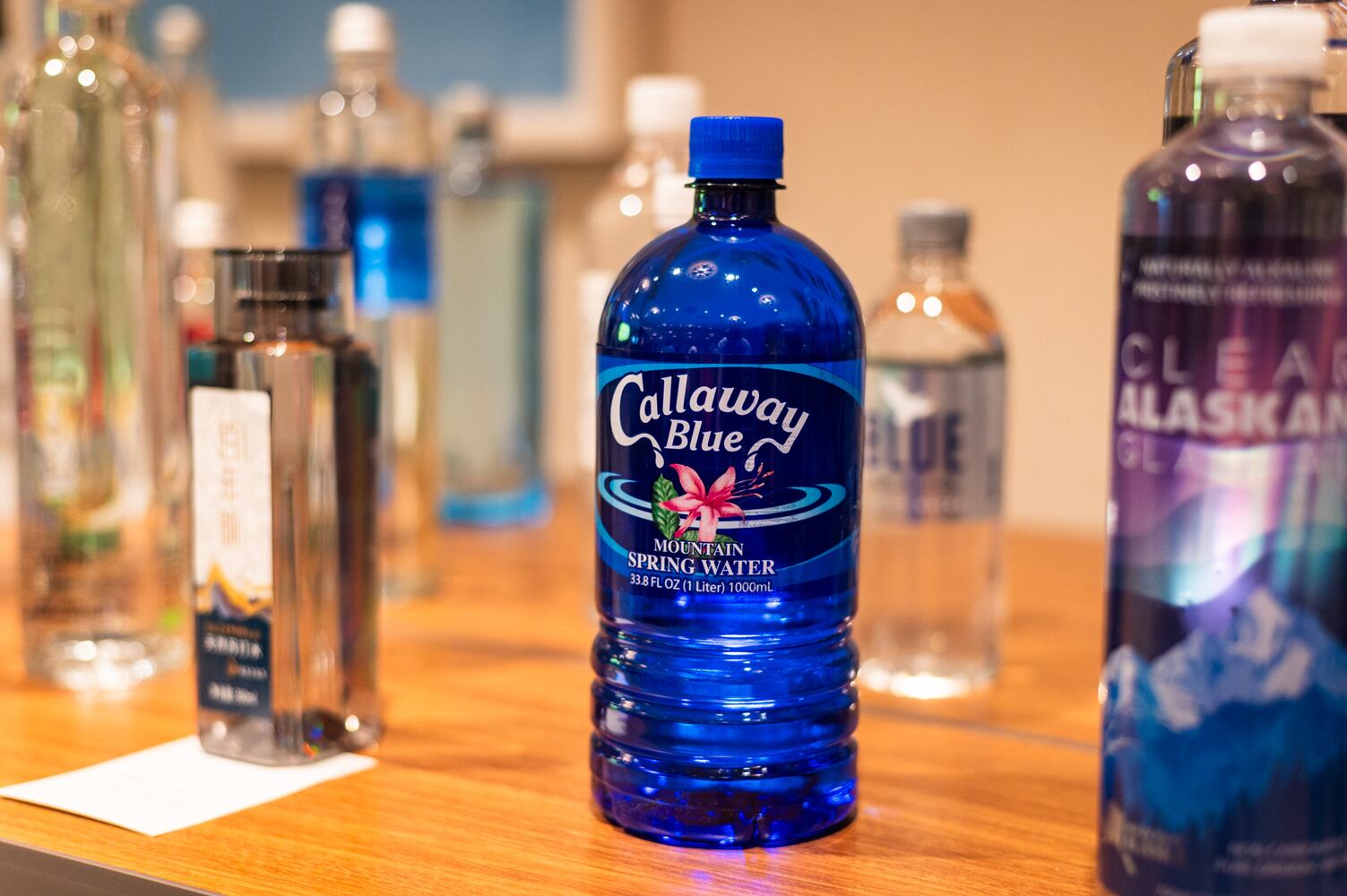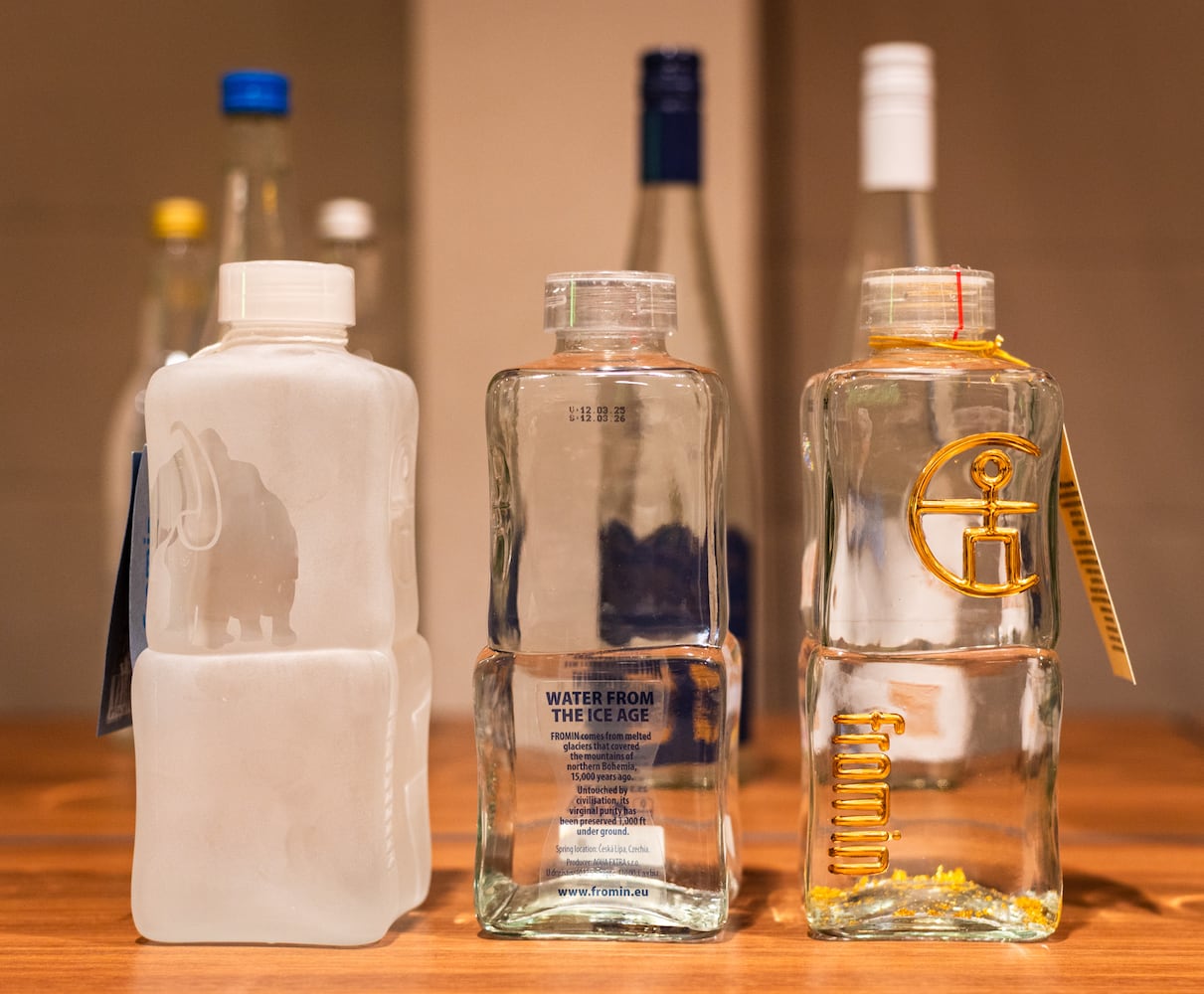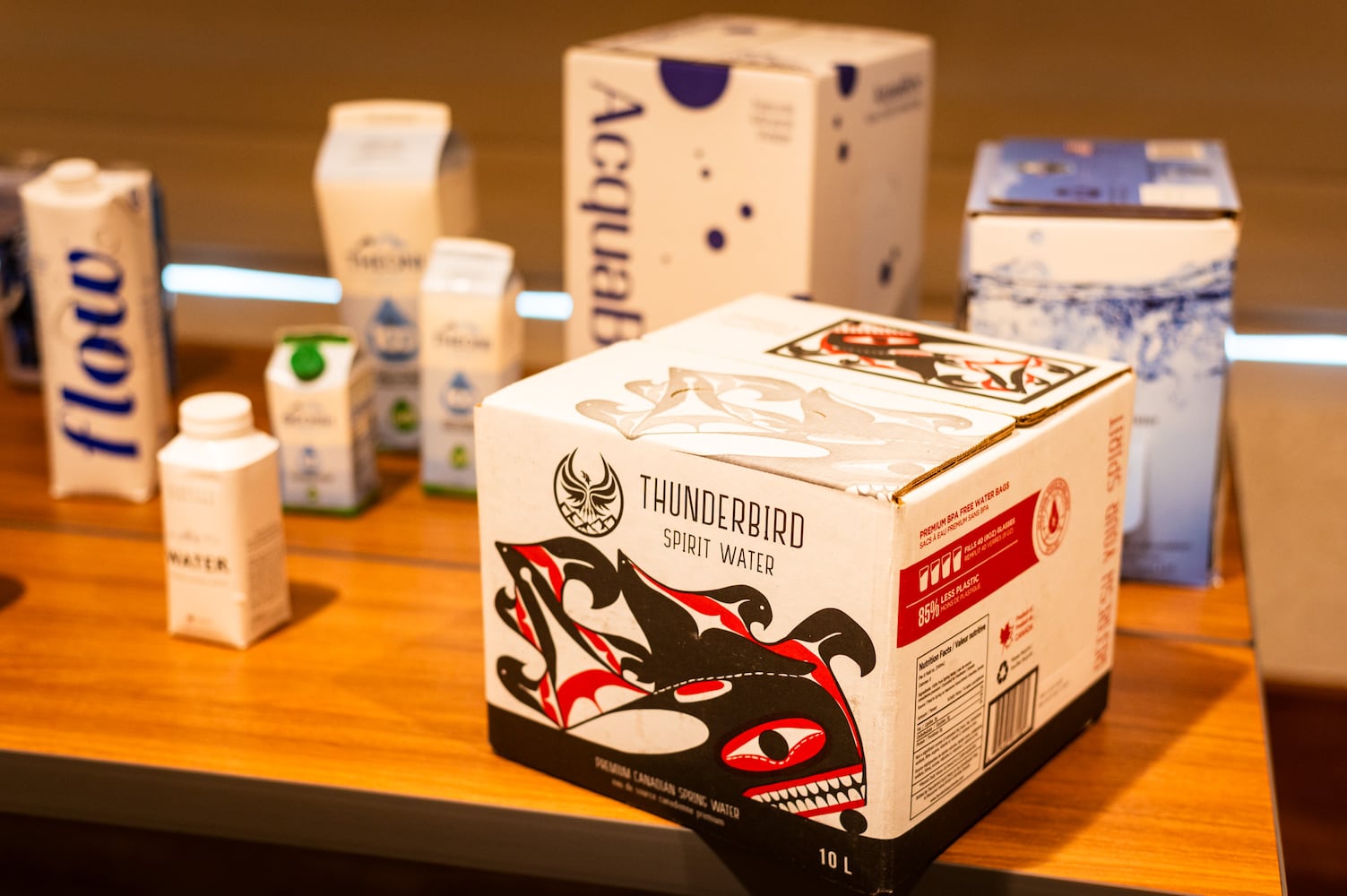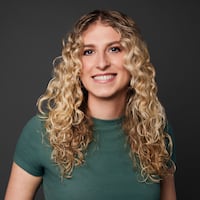Storytelling is a popular word at the 2025 Fine Water Summit in Atlanta.
A good story is part of what makes the rows of bottled waters stand apart from the tap variety most people drink on a daily basis.
Some of these waters come from the ice age, derived from melted glaciers that covered the mountains of northern Bohemia 15,000 years ago, or from water droplets captured from the winter mist in Tasmania’s Huon Valley, or from a natural spring in the mountains of Vancouver Island.
The water is bottled with a design that shares these stories, and often a few short paragraphs are scrawled on the label about the beverage’s origin and the minerals packed within it.
“Because the flavors are much less intense compared to wine, the story becomes more important and more core to it, because it’s not as defined. The flavor profiles are much more subtle, so people are kind of drawn to the context,” said Elena Berg, a professor of environmental science at the American University of Paris and one of the Fine Water Summit judges.
Berg and five other figures from the Fine Water world gathered on a stage at the Kimpton Sylvan Hotel in Buckhead for the Fine Water Society’s Taste and Design Awards, the first event in the conference’s weekend itinerary of water exploration.
Michael Mascha, who also served as a judge, founded the Fine Water Society in 2008. He became fascinated with naturally sourced water when health issues led him to turn away from wine in the early 2000s. He defines fine water as a natural, minimally processed water that contains the minerality and character of the land from which it came.
Mascha said he had no expectations of selling out stadiums with the Fine Water Summit, but the two-hour tasting did attract a crowd of several dozen enthusiasts from around the world, including water sommeliers, employees from various water brands and an influencer with serious enthusiasm for H2O.
Attendees gathered to watch the six judges blind taste a lineup of around 100 waters. The tasting lasted about two hours, during which the judges sipped still and sparkling waters in a range of categories from super low minerality to very high minerality.
Throughout the process, the room was nearly silent but for the sound of sommeliers pouring about 2 ounces of water into each judge’s glass.
The judges swirled the water in their glasses, held it up to the light and sniffed it before taking a sip. After a few seconds of consideration, each judge jotted down notes and flipped their score cards to a number out of 100. Most waters submitted scored in the upper 90s.
Later in the evening, awards would be passed out to the winning producers, but that didn’t stop some from celebrating early. Several producers took to the stage for photos after the judging concluded, arranging the score cards to show their final tally.
Oliver Merino, founder and CEO of event sponsor Source to Bottle, said two of the water brands he imports won their categories: Socosani and Tehuacan.
Mascha has been advocating for the concept of fine water and water sommeliers for more than 20 years, and the idea attracts an international crowd. Previous conferences have been held in San Sebastian, Spain; Athens, Greece; Los Angeles; and Bled, Slovenia.
This was Jacob Medina’s first time at the summit. Medina is from Washington, so when he learned it would be held in Atlanta he was quick to register for the weekend. Medina isn’t a water sommelier, but he does have a burgeoning passion for fine water. It was sparked a few years ago when he tasted water from a spring near his hometown for the first time.
“It was kind of a spiritual experience,” he said. “My body was just very responsive to it.”
He discovered Vichy Catalan, a sparkling mineral water from a source in Caldes de Malavella in Spain, and fell in love. Now he drinks a bottle about once a week. Medina came to the conference to meet others in the fine water world and to try as many different waters as he could.
“Water’s our baseline, it’s what we drink, and you can get a sense of the terroir, and if you’re sensitive to it you can really taste the difference and feel the difference,” he said.
Jonathan Primeau flew from Montreal to attend the conference. Primeau creates and builds wine cellars, but during COVID-19, he stopped drinking alcohol. He discovered Mascha and embarked on his certified water sommelier course. Primeau’s new passion inspired him to integrate water bottle displays into his wine cellar business.
“The idea is to balance, no? And everything’s good in life, but to no excess,” he said. “With water there’s character, there’s a story, there’s terroir, there’s so many things to learn.”
As a water sommelier, his passion isn’t only about tasting fine water, Primeau said, it’s also about “positioning water in every field of our life.”
“How do we protect this, how do we respect the natural filtration process, not to put too much pressure on it, and how do we protect it for the next generations?” he asked.
This year’s summit will explore the theme of sustainability with a series of lectures and information sessions Saturday and Sunday, including one from Berg, who will deliver an ecological sustainability lecture.
Berg discovered the world of fine water while planning a bottled water demonstration for her students. The demonstration led her to discover there were many different companies offering water beyond the giant beverage conglomerates.
It turned into a research interest of Berg’s in which she combines the mineral water world with questions of environmental sustainability. From her perspective, the Fine Water Society offers its members the perfect opportunity to practice environmental advocacy.
“These people are all in love with water,” she said. “They all have to protect their sources in order to have these businesses, so it’s kind of a natural mix I wouldn’t have anticipated because I had put bottled water into one giant category.”
She said it’s important to recognize that, whether the water is bottled in aluminum, plastic or glass, all these materials will have a carbon impact, so she treats it more like a bottle of wine, “something really special that I open, (that) I think about the flavors of how they go with the food.”
Berg encourages companies to make an effort to sell their water to local markets instead of solely focusing on international distribution.
“Most people aren’t going to spend 10 euros on rare iceberg water, but at the same time, there can be a delight in that,” she said. “And in fact, the price for that is much lower than a fine bottle of wine.”
Sign up for the AJC Food and Dining Newsletter
Read more stories like this by liking Atlanta Restaurant Scene on Facebook, following @ATLDiningNews on X and @ajcdining on Instagram.
Keep Reading
The Latest
Featured
